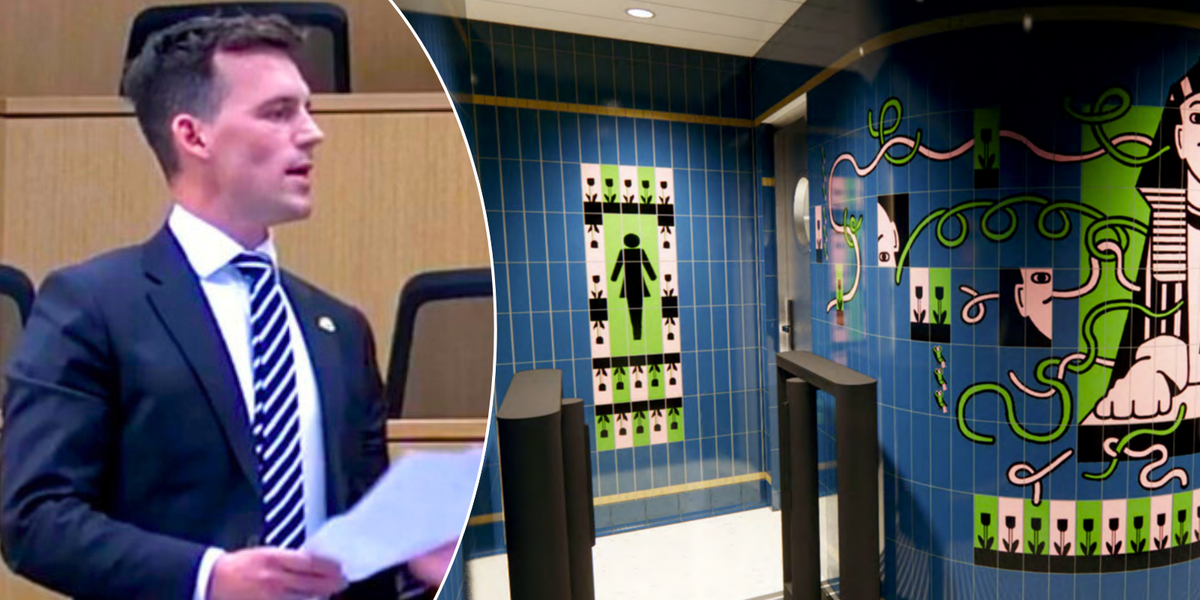Controversy Erupts Over Public Toilet Plans in London: A Clash of Perspectives
In the heart of London, a debate has ignited over the design and consultation process for new public toilets, drawing attention to the complexities of gender identity and community representation. The controversy began when Ed Pitt Ford, a Conservative councillor and member of "LGBT+ Conservatives," criticized the Labour-run Westminster City Council for allegedly failing to consult with transgender and non-binary communities regarding the refurbishment of public toilets at key locations such as Piccadilly Circus, Embankment, and Green Park.
The Plans for Modernization
Westminster City Council is undertaking a modernization scheme aimed at refreshing existing public facilities. The proposed plans include separate men’s and women’s toilets, clearly marked with large signs. While the intention behind these renovations is to enhance public amenities, the decision to maintain a binary approach to gendered facilities has sparked significant backlash from various quarters.
Pitt Ford’s Critique
Pitt Ford took to social media to express his discontent with the council’s approach, sharing images of the proposed toilet signs and urging the council to engage with non-cisgendered individuals in future consultations. He stated, "I recently discovered that Labour-led Westminster City Council didn’t consult the trans and non-binary communities for the refurbishment plans for flagship public toilets." His call for inclusivity aimed to highlight the importance of representation in public decision-making, particularly for marginalized groups.
Public Reaction: A Divided Response
The response to Pitt Ford’s comments was swift and polarized. Many social media users expressed confusion and frustration over his terminology, with one user, Brian Coleman, questioning the relevance of "non-cisgendered people" to the average voter. This sentiment was echoed by Tory MP Andrew Rosindell, who dismissed Pitt Ford’s remarks as "divisive nonsense," reflecting a broader skepticism within certain factions of the Conservative Party regarding discussions of gender identity.
In contrast, Pitt Ford defended his position by directing Coleman to the NHS’s page on gender dysphoria, emphasizing the need for greater awareness and understanding of transgender issues. This exchange highlights the ongoing struggle within political circles to navigate the complexities of gender identity while appealing to a diverse electorate.
Criticism from Gender-Critical Groups
The controversy did not end with social media exchanges. Gender-critical groups and conservative activists also weighed in, labeling Pitt Ford’s language as "bizarre" and "virtue-signalling nonsense." Fiona McAnena, director of campaigns at the human rights charity Sex Matters, criticized the councillor’s choice of words, suggesting that his approach obscured the practical considerations of public toilet design. She stated, "Everyone is either male or female. If this local councillor thinks there should be a third, gender-neutral option for public toilets, he could say so."
This critique underscores a significant divide in public opinion regarding the need for gender-neutral facilities versus traditional binary options. While some advocate for inclusivity and representation, others argue for a more straightforward approach that aligns with conventional understandings of gender.
The Broader Implications
The debate surrounding the public toilet plans in Westminster reflects broader societal tensions regarding gender identity, representation, and the role of local government in addressing these issues. As cities evolve and strive to become more inclusive, the challenge lies in balancing the needs and perspectives of diverse communities while maintaining clarity and accessibility in public services.
The Westminster City Council has yet to respond to the uproar, leaving many to wonder how they will navigate the complexities of this issue moving forward. As discussions about gender identity continue to evolve, the outcome of this controversy may set a precedent for how local authorities engage with marginalized communities in the future.
Conclusion
The clash over public toilet plans in London serves as a microcosm of the larger conversations surrounding gender identity and representation in society. As local councils grapple with the implications of their decisions, the voices of both supporters and critics will undoubtedly shape the future of public amenities and the inclusivity of urban spaces. Whether through the establishment of gender-neutral facilities or enhanced consultation processes, the path forward will require thoughtful dialogue and a commitment to understanding the diverse needs of all citizens.
